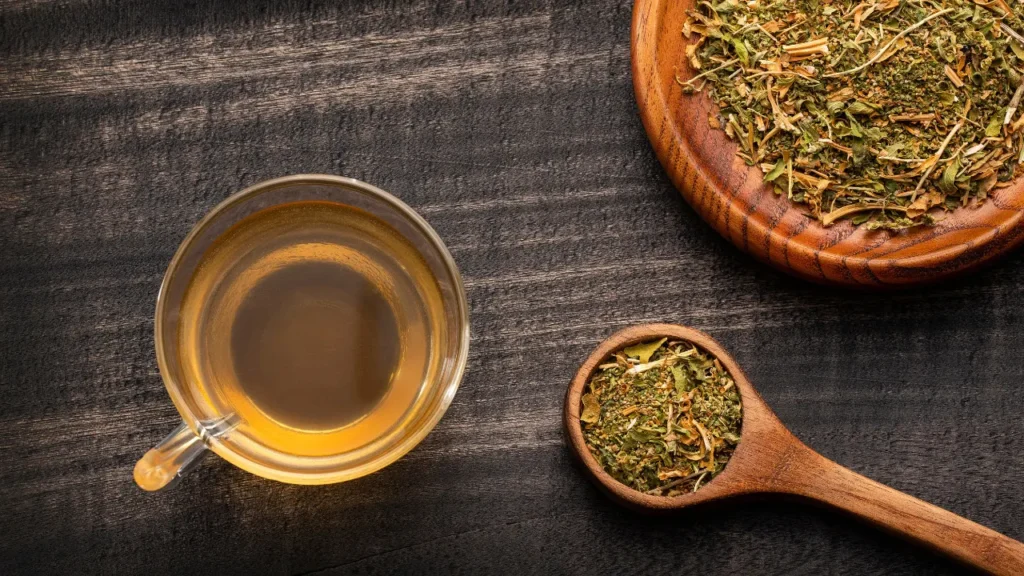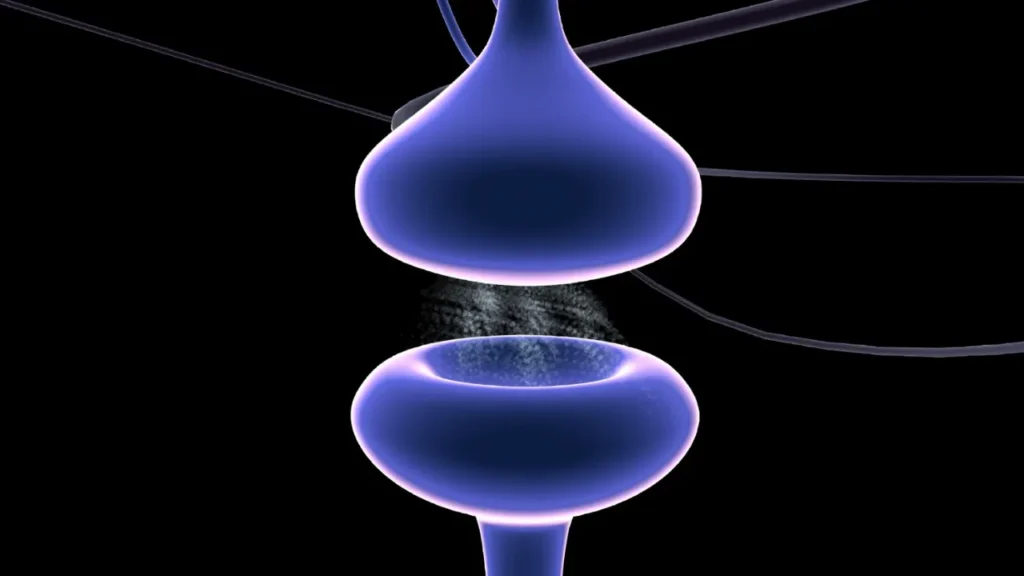The perennial herbaceous plant wormseed (Chenopodium ambrosioides), sometimes referred to as Mexican tea or epazote, is a member of the Amaranthaceae family. This plant’s anthelmintic, antispasmodic, and antibacterial characteristics have made it a popular traditional medicine ingredient. It is native to Central and South America. The nature, phytochemistry, health advantages, recommended dosage, negative effects, possible drug interactions, and safe use of wormseed as a nutritional supplement will all be covered in this article.
You May Also Like:
Diamond CBD Gummies vs. Joy Organics CBD Gummies
CBD for Concentration: The Productivity Hack for Energy and Focus
Wormseed: Benefits, Dosage, Side Effects, Drug Interactions, and Other Important Information is an original (NootropicsPlanet) article.
Nature of Wormseed
A strong, fragrant plant known as wormseed is distinguished by its serrated leaves, greenish blooms, and characteristic, odorous scent. It can reach a height of 1.2 meters and is typically found in tropical and subtropical areas. The plant’s leaves and seeds have long been utilized in cuisine and medicine, particularly for the treatment of parasitic illnesses like intestinal worms.
Health Benefits of Wormseed
1. Antihelmintic activity: The main health advantage of wormseed is its anthelmintic activity, which is contributed by ascaridole. Ascaridole is known to interfere with the neuromuscular activity of parasites, resulting in their paralysis and eventual expulsion from the host’s digestive system. Roundworms, hookworms, and whipworms are just a few of the intestinal parasites that wormseed has shown effective against.
2. Antimicrobial effects: Due to the presence of bioactive substances such as p-cymene, limonene, and -terpinene, wormseed has demonstrated antimicrobial action against a variety of harmful bacteria and fungi. By compromising the integrity of cell membranes, and interfering with microbial protein synthesis, these substances can kill bacteria and prevent bacterial growth.
3. Antispasmodic properties: Due to the bioactive components in Wormseed’s ability to control the activity of the smooth muscles in the gastrointestinal system, it has long been used to treat gastrointestinal spasms and cramps. Irritable bowel syndrome (IBS) patients and those with other gastrointestinal diseases may potentially benefit from Wormseed’s antispasmodic characteristics.
4. Antioxidant activity: Flavonoids and other phenolic compounds found in wormseed have the ability to neutralize free radicals and lessen oxidative stress. This may lessen the likelihood of developing chronic illnesses including cancer, cardiovascular disease, and neurological disorders, and protect cells from harm.

Chemistry of Wormseed
Numerous bioactive substances, including alkaloids, flavonoids, saponins, and essential oils, are present in wormseed’s chemical makeup. Wormseed’s main active component, ascaridole, a monoterpene peroxide, is what gives it its anthelmintic qualities. P-cymene, limonene, myrcene, and -terpinene are some other noteworthy chemicals found in wormseed that support the variety of pharmacological effects of this plant.
Physiological Mechanism of Action of Wormseed
Many bioactive chemicals that are responsible for the health advantages of wormseed exert their effects through various processes within the human body. The following are the main mechanisms of action:
1. Anthelmintic activity: The primary bioactive component that gives wormseed its anthelmintic effects is ascaridole. By blocking the acetylcholinesterase enzyme, which is crucial for neurotransmission, this monoterpene peroxide can impair the neuromuscular function of parasites. As a result, the parasites are rendered helpless and can be removed from the host’s digestive system.
2. Antimicrobial effects: Compounds including p-cymene, limonene, and -terpinene interfere with the creation of microbial proteins, disrupting the integrity of bacterial cell membranes, and inhibiting quorum sensing in bacteria. These in turn stop the spread of infection.
3. Antispasmodic qualities: The bioactive substances in wormseed can control the activity of smooth muscles in the gastrointestinal system, consequently minimizing spasms and cramps. This mechanism is probably mediated by calcium channel inhibition and nitric oxide production regulation, both of which are essential for smooth muscle contraction.
4. Antioxidant activity: By scavenging free radicals, chelating metal ions, and controlling the activity of antioxidant enzymes, the flavonoids, and other phenolic compounds in wormseed display antioxidant capabilities. This can lessen the risk of chronic diseases brought on by oxidative stress and protect cells from oxidative damage.

Optimal Dosage of Wormseed
Wormseed dose as a nutritional supplement is determined by numerous variables, including age, weight, and general health. Wormseed should be used with caution and under the supervision of a healthcare provider due to the potential toxicity of ascaridole and other bioactive substances in it.
Wormseed has traditionally been eaten as an infusion or decoction, prepared by steeping dried leaves or seeds in hot water. A healthcare practitioner should decide on the precise amount and timeframe of wormseed supplementation depending on the demands of the patient and the intended health outcomes. Due to its probable toxicity and negative side effects, wormseed shouldn’t be used as a long-term supplement.
Side Effects of Wormseed
While wormseed has several health advantages, it can also have negative effects, especially when consumed in large quantities or over an extended period of time. The following are a few possible wormseed adverse effects:
1. Gastrointestinal symptoms: Wormseed, especially when ingested in large amounts, can induce gastrointestinal disturbances such as nausea, vomiting, diarrhea, and abdominal discomfort.
2. Hepatotoxicity: It has been noted that the ascaridole found in wormseed might occasionally result in liver damage. Use Wormseed with caution if you have a history of liver disease or are using drugs that can harm your liver.
3. Allergic reactions: Some people who are allergic to wormseed may have skin rashes, breathing problems, or itching. If you see any symptoms of an adverse response after swallowing wormseed, stop using it right once and seek medical advice.

Potential Substance Interactions with Wormseed
Wormseed may interact with some medicines, reducing their effectiveness or raising the possibility of negative side effects. Medication interactions with wormseed include, for instance:
1. Anticoagulants: Flavonoids may interact with anticoagulants like warfarin to change how well they work.
2. Drugs that are hepatotoxic to the liver: Wormseed may worsen the hepatotoxic effects of some drugs, like acetaminophen or statins, thereby raising the risk of liver damage. To reduce any potential problems, it is best to discuss the timing and dosage of wormseed with a healthcare provider if you are using hepatotoxic drugs.
Best Responsible Uses of Wormseed
The following recommendations are made to ensure the proper and safe use of wormseed as a dietary supplement:
1. Speak with a healthcare provider before beginning wormseed supplementation. This is especially important if you have any pre-existing diseases, are pregnant or nursing, or are taking any drugs that might interfere with wormseed.
2. Use under supervision: Because wormseed has the potential to be poisonous, it is important to use it under the direction and supervision of a healthcare provider who can decide on the right dosage and usage time.
3. Purchase from reputed suppliers: It’s crucial to get wormseed supplements from reliable vendors who follow proper manufacturing processes and offer independent testing for impurities and potency. This will guarantee the greatest quality and safety of the supplements.
Wormseed:
Conclusion
The nature of wormseed contains various health-benefiting bioactive components such as p-cymene, limonene, and -terpinene. These compounds are said to deliver antimicrobial effects, antispasmodic effects, and antioxidant activity. As a plant that is native to Central and South America, it has been recognized in traditional and herbal medicine. Recent research and studies done on this plant reveal and provide facts that wormseed can improve your well-being. However, it is important to be strict when adding a supplement to your routine. You must listen to your healthcare providers for advice and understand the properties of this supplement before consuming it.

References:
- Studies on the Traditional Herbal Anthelmintic Chenopodium Ambrosioides L.: Ethnopharmacological Evaluation and Clinical Field Trials. Retrieved from:https://pubmed.ncbi.nlm.nih.gov/3906906/
- Studies on the Traditional Herbal Anthelmintic Chenopodium Ambrosioides L.: Ethnopharmacological Evaluation and Clinical Field Trials. Retrieved from:https://pubmed.ncbi.nlm.nih.gov/9707679/
- The Effect of Ascaridole on The In Vitro Development of Plasmodium Falciparum. Retrieved from:https://pubmed.ncbi.nlm.nih.gov/2217117/
Important Note: The information contained in this article is for general informational purposes only, and should not be construed as health or medical advice, nor is it intended to diagnose, prevent, treat, or cure any disease or health condition. Before embarking on any diet, fitness regimen, or program of nutritional supplementation, it is advisable to consult your healthcare professional in order to determine its safety and probable efficacy in terms of your individual state of health.
Regarding Nutritional Supplements Or Other Non-Prescription Health Products: If any nutritional supplements or other non-prescription health products are mentioned in the foregoing article, any claims or statements made about them have not been evaluated by the U.S. Food and Drug Administration, and such nutritional supplements or other health products are not intended to diagnose, treat, cure, or prevent any disease.


